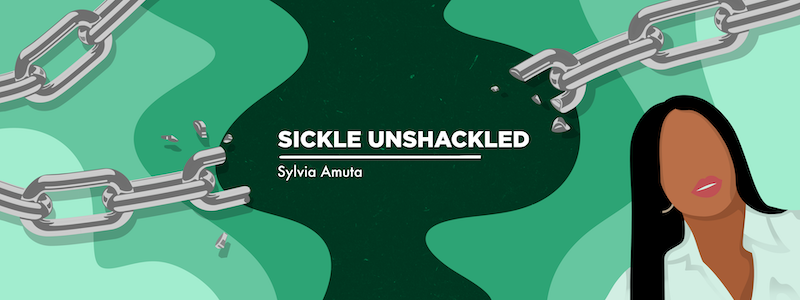What I’ve learned about dealing with caregiver guilt
Recent conversations with my young cousin have been eye-opening
Written by |

As caregivers, we often find ourselves riding a roller coaster of emotions, with each twist and turn bringing forth a new wave of feelings. Caring for a loved one with chronic illness can involve moments of joy and relief, as well as bouts of sadness and guilt.
In my journey as a caregiver to my young cousin, Ada, who battles sickle cell disease, I’ve experienced the full spectrum of emotions. Recently, guilt became an unwelcome companion on my caregiving journey. It crept in as I made the difficult decision to pursue a career opportunity abroad, leaving Ada in the care of others.
The guilt stemmed from a multitude of reasons. I questioned whether my absence would hinder Ada’s progress in managing her condition. I grappled with the unfairness of her having to endure such a challenging illness while others enjoyed good health. And I worried about the impact of my departure on her well-being and our familial bonds.
Recently, she experienced a severe crisis, which initially began with a harmless flu that escalated to the point of hospitalization and treatment for pneumonia. I couldn’t shake the thought that perhaps my presence could’ve prevented this hospitalization.
An important revelation
Recognizing the weight of these emotions, I began a journey of introspection and communication. During heartfelt phone conversations with Ada, I shared my feelings of guilt and uncertainty. To my surprise, she too harbored feelings of guilt, believing she burdened our family with her illness.
This revelation opened the floodgates of empathy and understanding between us. We worked through our shared emotions together, offering reassurance and support. Through tears and laughter, we forged a deeper connection, grounded in mutual compassion and acceptance.
Our experience taught me a valuable lesson: As caregivers, it’s essential to acknowledge and address our emotions openly. By sharing our struggles with loved ones, we not only lighten our emotional burden, but also strengthen our bonds and resilience.
I therefore recommend the following advice to other caregivers:
Embrace your emotions, even the uncomfortable ones like feeling underappreciated, burned out, guilty, or that we’re not doing enough.
Seek solace in the company of loved ones and never underestimate the power of honest communication.
It’s important to grant yourself grace as a caregiver, recognizing that you’re doing the best you can.
Always remember that by caring for your emotional well-being, you become better equipped to provide the love and support your loved one needs. After all, our journey is not defined by the challenges we face, but by the love and connection we share along the way.
Note: Sickle Cell Disease News is strictly a news and information website about the disease. It does not provide medical advice, diagnosis, or treatment. This content is not intended to be a substitute for professional medical advice, diagnosis, or treatment. Always seek the advice of your physician or other qualified health provider with any questions you may have regarding a medical condition. Never disregard professional medical advice or delay in seeking it because of something you have read on this website. The opinions expressed in this column are not those of Sickle Cell Disease News or its parent company, Bionews, and are intended to spark discussion about issues pertaining to sickle cell disease.



Leave a comment
Fill in the required fields to post. Your email address will not be published.